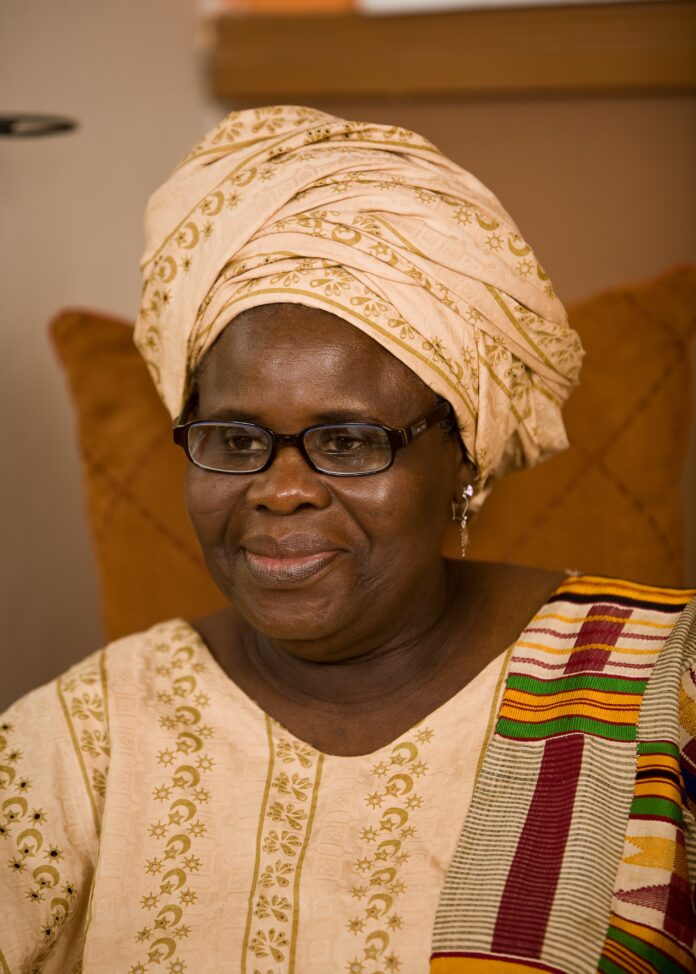
Ama Ata Aidoo’s literary capital was social justice. Even in an imperfect state, she believed that moral fiats and laws are essential human ideals. These were reflected in the protagonists of her signature plays, the vanguard of educational literature – The Dilemma of a Ghost written in her early 20s in 1964, and Anowa in 1970. A plethora that followed included poetry collections, the last of which was After the Ceremonies.
It can be inferred from her thoughts that strands of justice should be those which are not coloured and more than a feminist approval of anything. It is certainly not necessarily an appeasement of womanhood. She once had a literary clash when she reviewed a play by the Nigerian Nobel laureate Wole Soyinka, as she expressed concerns about his characterisation of women.
Many were surprised as they thought he had constantly portrayed women respectfully: The Lion and the Jewel and the magnus Opus, Death and the Kings Horseman among others which Ama Ata Aidoo had taught for years in the United States.
It was in 1999 after a decade of professorial work and when she had returned to Ghana from Zimbabwe that I understood what justice meant to her. She had invited me for lunch at her favourite but now demolished Shangari Hotel at the West Airport Residential Area. This was where an interview for West Africa magazine took place. It became frequent. On an occasion, I did so with the world leading philosopher, Kwame Anthony Appiah and his Anglo-Ghanaian mother, Peggy Appiah. Ama Ata Aidoo had agreed to jointly launch (with JH Kwabena Nketia) an edited work of ours, Bu Me Be – Proverbs of the Akans. After that British Council event, we got closer in friendship.
She was not always an easy person to deal with. She had agreed that I could work with our mutual publisher in Oxfordshire, Ayebia Clarke, for the launch of Essays in Honour of Ama Ata Aidoo at 70 edited by the African-American scholar Anne Adams; and the collection of short stories, Diplomatic Pounds. Then on Soyinka’s 80 birthday, she contributed to Crucible of the Ages (alongside Derek Walcott, Nadine Gordimer, Toni Morrison, her good friend Ngugi wa Thiong’o and others) which I edited with the Nigerian novelist, Ogochukwu Promise.
As her mobility deteriorated, she occasionally invited me home for lunch and wine. At this point, she contributed to two anthologies I had edited, All the Good Things Around Us, which was launched at the Houses of Parliament in London, and The Gods Who Send Us Gifts to mark the 55th anniversary of the Makerere Conference of African Literature at the School of Oriental and African Studies (SOAS). One of her favourite writers (of the Noma Award classic, The Cry of Winnie Mandela) Njabulo Ndebele and younger ones such as Sefi Atta, Monica Arac de Nyeko, Martin Egblewogbe, Ayesha Harruna-Atta made enjoyable company for her.
At another lunch, she discussed a new writing: the short story of a train journey set during the Syrian civil war. As we ate, she read parts of it and later on gave me the manuscript. It was the best from she who could happily engage and sometimes quickly disengage. She called one morning and said I could publish Aleppo, the Syrian short story in my next anthology. As it was getting to her 80th birthday, I decided for a title Between the Generations, with Aleppo as the headliner and a younger generation of writers’ stories in-between.
Aleppo was her last published story among other unpublished works such as Zero Means Down-stairs.
In the last couple of years, aging was against her mobility. Her eyes were not as before. She read to me her written poem of lamentation published in Between the Generations titled Eyes.
In a poetic riposte, I wrote in A Playwright’s Eyes:
You do not see it has issues,
No cataract,
Not teary,
The eyelids roll like any other,
It sees,
It reads,
Enables writings.
A feel of the humanity around her,
Of the grandchildren who come to see her behind the desk;
say their good-bye and good-nights;
their facial expressions which
make her laugh because the eyes can see.
The small monies they need: for telephone credit, transport fare-
the humanity of their presence;
aided by senses of the eyes.
But that is on the face of it,
For she who wears it complains of its deterioration,
No ingratitude;
for eighty years, they have opened and closed in millions:
daily
weekly
monthly
yearly.
It is naturally weary,
A needed rest from the collective functionary whole.
“That reminds us of rest and death,” she says.
With the same enabled eyes, she says again:
“Friends and family could console,
‘We thank God for your eyes,
‘So much they helped you accomplish.’
Her response:
“But that was then
How about now?”
When I was a Centenary Research Associate at SOAS, Baroness Amos asked if I could arrange for Ama Ata Aidoo and Chimamanda Ngozi Adichie to receive honorary degrees. The latter had paid growing tribute to the former for her own confidence to write. It was to be a room-packed event. It was still so even if Ama Ata Aidoo could not eventually honour it. Chimamanda spoke in gratitude of the elders’ footsteps and their imprints on her generation and the future.
The end is always at a time.
Even for the great:
a Gold Coast seedling that blossomed into a literary rose!!
May you travel back in the shadows of the muses that gave your power!!









